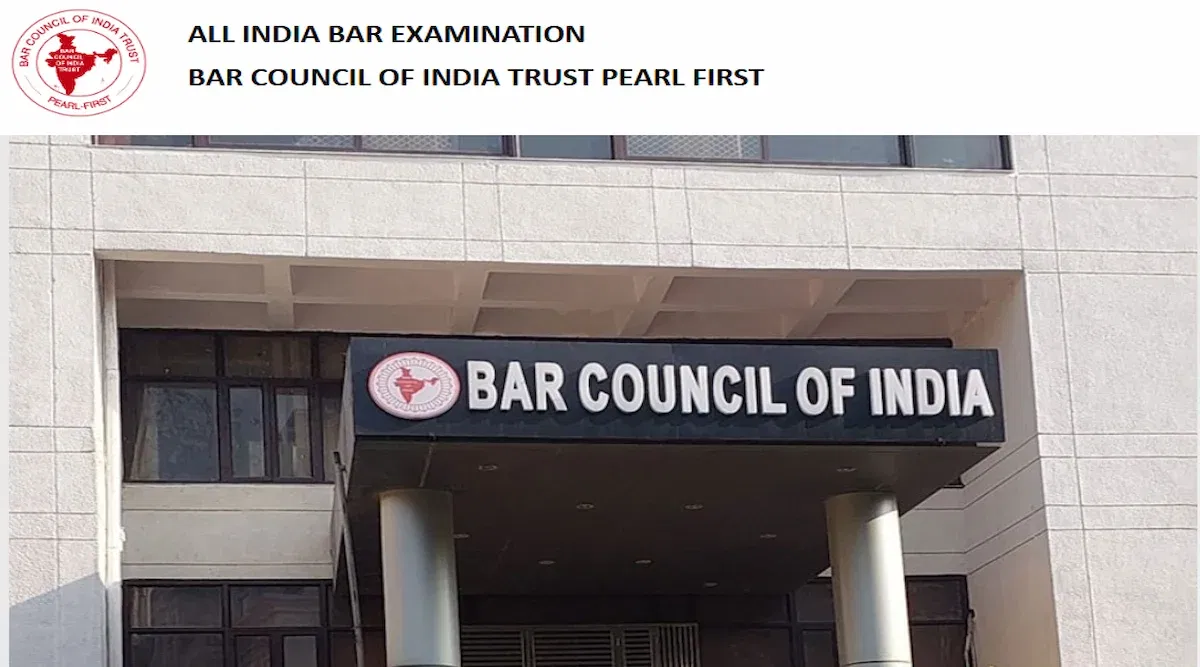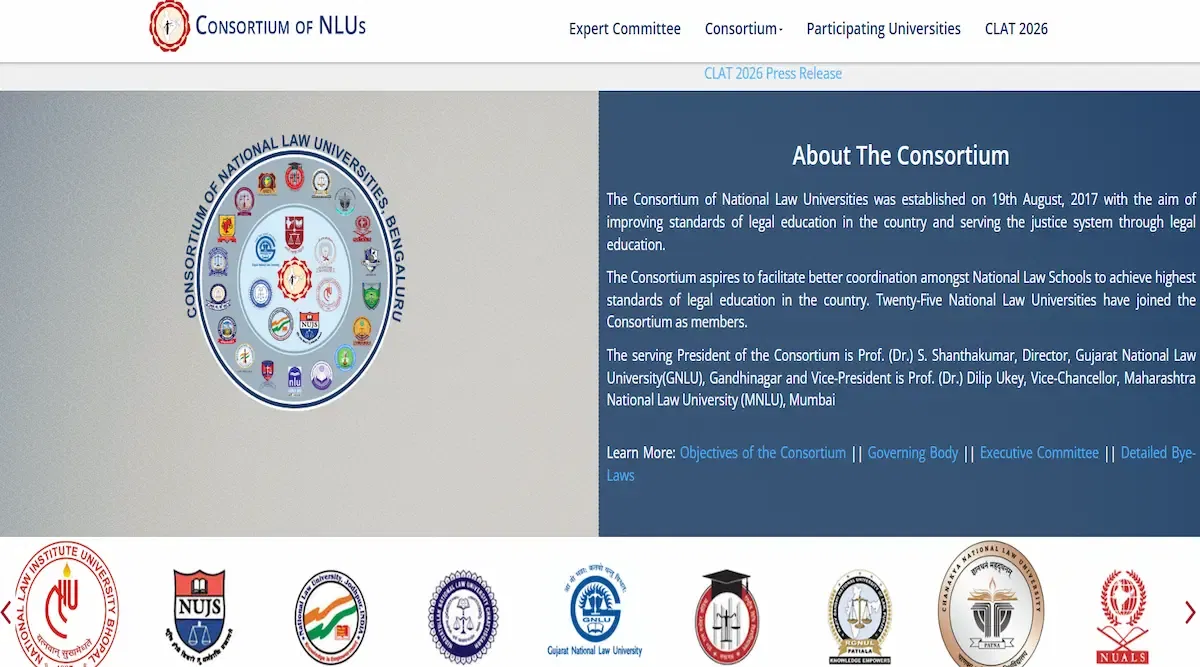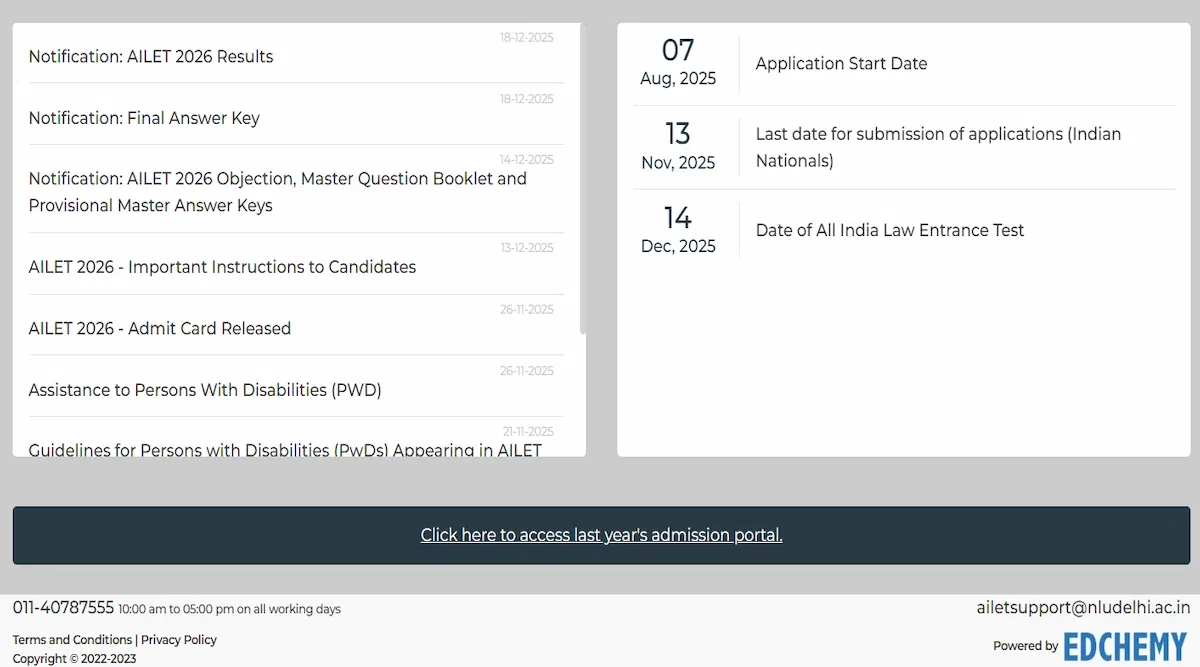Get complete details about Law Colleges in Canada. Check the Top Universities with their Rankings, Fees, Admission Requirements and Graduate Programs.
There are over 70 law colleges in Canada providing 240+ courses in study areas such as civil law, social & legal studies, justice & society, and many more. The average fees of law college in Canada ranges between $6,000- $28,000 per academic year. Canada follows a bi-jurisdictional system that includes both public and private law components.
The Juris Doctor or JD is the first-level common law degree in Canada that takes about 3 years to complete. It is an undergraduate degree program with introductory courses in various law specializations such as criminal law, property law, contracts law, and more. Find below some of the best law colleges in Canada for international students with fee details, eligibility criteria, and more.
Table of Contents
- Top Colleges for Law in Canada
- Why Study at Law Colleges in Canada?
- Top Courses at Law Colleges in Canada
- Certificate/ Diploma Courses at Law Colleges in Canada
- Law Colleges in Canada: Admission Requirements
- Cost of Living in Canada
- Law Colleges in Canada: Career Scope
Top Colleges for Law in Canada
Canada has around 20 top colleges and universities ranked by the QS World University Rankings 2022 offering law degree programs to students from all over the world. The law programs are offered at the undergraduate, graduate, and doctoral levels and also as diploma and certificate programs. Some of the best law colleges in Canada for international students are listed below:
- University of Toronto
- McGill University
- University of British Columbia
- University of Alberta
- University of Montreal
- University of Waterloo
- Queen’s University
- Western University
- Dalhousie University
- University of Ottawa
University of Toronto (U of T)
University of Toronto is one of the top-ranking universities in the world and a global leader in higher education and research. It is located in Toronto, Ontario. It is ranked #17 in the QS Rankings by subject and offers the Juris Doctor (JD) and LLM degree courses through its Faculty of Law. Find below some of the popular law courses offered at U of T:
Undergraduate Law Courses at U of T
- Bachelor of Arts [B.A] Criminology and Sociolegal Studies (4 years): $37,835
- Juris Doctor [J.D] (4 years): $38,280
- Bachelor of Arts [B.A] in Criminology, Law, and Society (4 years): $37,835
Graduate Law Courses at U of T
- Master of Law [L.L.M] (1 year): $33,352
- Global Professional Master of Laws (GPLLM) (12 months): $64,860
- Master of Studies in Law (MSL) (1 year): $28,650
Doctoral Law Courses at U of T
- Doctor of Juridical Science: $6,210
Read More: University of Toronto
McGill University
McGill University is the only academic institute of higher education in Canada to be a part of the Global University Leaders Forum (GULF). It is located in Montreal, Quebec. It is ranked #25 in the QS Rankings by subject and offers the Bachelor of Civil Law (BCL) and JD, LLM, and Ph.D. degree courses through its Faculty of Law. Find below some of the popular law courses offered at McGill University:
Undergraduate Law Courses at McGill
- Bachelor of Civil Law (BCL)/ Juris Doctor (JD) (3.5 years): $42,392
Graduate Law Courses at McGill
- LLM (2 years): $9,378
- Master of Law [L.L.M] in General Law (2 years): $13,470
Doctoral Law Courses at McGill
- Ph.D. in Law (4 years): $52,680
- Doctor of Civil Law (DCL) in Law: $48,366
- Doctor of Civil Law in Comparative Law: $48,366
- Doctor of Civil Law in Air and Space Law: $48,366
Read More: McGill University
University of British Columbia (UBC)
University of British Columbia is one of the oldest universities in BC located in Vancouver, British Columbia. It is globally is renowned for embracing potential and innovation and ranks in the top 50 universities in the world. It is ranked #42 in the QS Rankings by subject and offers the JD (Dual Degree), JD + MBA degree courses through the Peter A. Allard School of Law. Find below some of the popular law courses offered at UBC:
Undergraduate Law Courses at UBC
- Juris Doctor (Dual Degree) (3 years): $37,360
- JD + MBA (4 years): $31,223
Graduate Law Courses at UBC
- Master of Law [L.L.M] in Taxation (1 year): $29,493
- Master of Law [L.L.M] (1 year): $6,714
- Master of Law [L.L.M] in Common Law (1 year): $34,599.60
Doctoral Law Courses at UBC
- Doctor of Philosophy in Law: $8,952.27
Read More: University of British Columbia
University of Alberta (U of A)
University of Alberta is a public institute located in the province of Edmonton, Canada. It is ranked #201-#250 in the QS Rankings by subject and offers the JD (Dual Degree), LLM, and Ph.D. degree courses through its Faculty of Law. Find below some of the popular law courses offered at U of A:
Undergraduate Law Courses at U of A
- Juris Doctor (Dual Degree) (3 years): $10,823
- Bachelor of Arts [B.A] Criminology (4 years): $22,125
Graduate Law Courses at U of A
- LLM (1 year): $9,250
- Master of Law [L.L.M] Law (2 years): $7,100
Doctoral Law Courses at U of A
- Ph.D. in Law (3 years): $7,000
Read More: University of Alberta
University of Montreal (UdeM)
University of Montreal is a public institution located in Montreal, Quebec. It is one of the largest universities in North America renowned for its cutting-edge research and technological advancement. It is ranked #111 in the QS World University Rankings of 2022. It offers the Bachelor of Laws, Juris Doctor in North American Common Law (Dual Degree), LLM, and Ph.D. degree courses through its Law Faculty. Find below some of the popular law courses offered at UdeM:
Undergraduate Law Courses at UdeM
- Bachelor of Laws (3 years): $24,215
- Juris Doctor (Dual Degree) (3 years): $24,723
Graduate Law Courses at UdeM
- LLM (2 years): $27,515
- Master of Law [L.L.M] in Taxation (2 years): $20,250
Doctoral Law Courses at UdeM
- Ph.D. (3 years): $24,700
Read More: University of Montreal
University of Waterloo (UWaterloo)
University of Waterloo is one of the top universities in the world and is the only one to receive 5+ stars in research, teaching, employability, and facilities. It is ranked #149 in the QS World University Rankings of 2022 and offers the MA in Sociology and Legal Studies degree course in addition to other undergraduate and doctoral law programs. Find below some of the popular law courses offered at UWaterloo:
Undergraduate Law Courses at UWaterloo
- Bachelor of Arts [B.A] in Legal Studies (Co-op) (4 years): $30,675
- Bachelor of Arts [B.A] in Legal Studies (4 years): $26,475
Graduate Law Courses at UWaterloo
- MA in Sociology and Legal Studies (2 years): $7,040
Doctoral Law Courses at UWaterloo
- Ph.D. in Sociology: $7,182
Read More: University of Waterloo
Queen’s University
Queen’s University is a publicly funded institute located in Kingston, Ontario. It is ranked in the top 4 universities in Canada and also highly honored for student satisfaction. It is ranked #151-#200 in the QS Rankings by subject and offers the JD + MBA and Graduate Diploma in Business (GDB) and LLM degree courses through its Faculty of Law. Find below some of the popular law courses offered at Queen’s University:
Undergraduate Law Courses at Queen’s
- JD+MBA (3.5- 4 years): $9,695
Graduate Law Courses at Queen’s
- LLM (1 year): $9,695
- Master of Laws [L.L.M] (2 years): $9,680
Doctoral Law Courses at Queen’s
- Ph.D. in Law (4 years): $9,695
Read More: Queen’s University
Western University (UWO)
Western University is a research-intensive public university located in London, Ontario. It is ranked #151-#200 in the QS Rankings by subject and offers the JD, JD + HBA, JD + BESc, and LLM degree courses in law. Find below some of the popular law courses offered at UWO:
Undergraduate Law Courses at UWO
- Juris Doctor [J.D] (4 years): $21,765
Graduate Law Courses at UWO
- Master of Laws (LLM): $29,065
- Master of Studies in Law (MSL): $29,065
Doctoral Law Courses at UWO
- Ph.D. in Law: $25,440
Read More: Western University
Dalhousie University (Dal)
Dalhousie University is one of the prime universities located in Halifax, Nova Scotia, Canada. It is ranked #251-#300 in the QS Rankings by subject. It offers the B.A. in Law, Justice & Society, LLM, and Ph.D. degree courses through the Schulich School of Law. Find below some of the popular law courses offered at Dalhousie University:
Undergraduate Law Courses at Dal
- Juris Doctor [J.D] (4 years): $6,675
- Juris Doctor [J.D]/ Master of Business Administration [M.B.A] (4 years): $32,383
Graduate Law Courses at Dal
- Master of Law [L.L.M] (1 year): $13,035
Doctoral Law Courses at Dal
- Ph.D. in Law (3 years): $6,659
Read More: Dalhousie University
University of Ottawa (uOttawa)
University of Ottawa is one of the largest bilingual university in the world located in Ottawa, Ontario, Canada. Students have the option of studying both in French and English. It is ranked #101-#150 in the QS Rankings by subject and offers JD and LLM degree courses through its Faculty of Law. Find below some of the popular law courses offered at uOttawa:
Undergraduate Law Courses at uOttawa
- Master of Business Administration [M.B.A]/Juris Doctor [J.D] (4years): $19,523
- Juris Doctor [J.D] (4 years): $24,300
- Bachelor of Social Science [B.Soc. Sc] in Criminology (4 years): $40,680
Graduate Law Courses at uOttawa
- Master of Laws [L.L.M] (2 years): $18,849
- Master of Law [L.L.M] (thesis-based) (2 years): $19,654
Doctoral Law Courses at uOttawa
- Ph.D. in Law: $28,246
Read More: University of Ottawa
Why Study at Law Colleges in Canada?
Canada offers law programs for international students as a Juris Doctor (JD) course or an LLM with both thesis and non-thesis options. A JD introduces students to the concepts of law through the perspective of common and civil law and legal traditions. It is a globally recognized dual degree law program offered at most of the law colleges in Canada. Some reasons to pursue law in Canada include:
- Top law colleges in Canada offer degrees in various specializations such as cyberspace law, forest law, indigenous legal traditions, etc
- There are an estimated 42,800+ jobs in Canada expected to be created for judges and lawyers from 2017- 2026
- The average salary of a law graduate in Canada is approximately $164,421 per annum
- Canada is ranked #4 in the world for its extensive research opportunities. It is also home to some of the top-ranking universities in the world such as McGill University, the University of Montreal, and more
- Canada offers a post-graduation work permit to international students that enables them to stay back after the completion of their graduation and look for a job.
Top Courses at Law Colleges in Canada
A law program in Canada is offered as a Juris Doctor or as an LLM with both thesis and non-thesis options. The law courses are versatile and are offered in various specializations that cover every aspect of law. Given below are some of the popular law specializations in Canada for international students:
| Jurisprudence and Critical Perspectives | Property Laws |
| Criminal Law and Procedure | Contracts |
| Ethics and Professionalism | Torts |
| Cyberspace Law | Forest Law |
| Canadian Constitutional Law | Intellectual Property |
| Environmental Law in Practice | Business Organizations |
| Administrative Law | Equitable Remedies |
Certificate/ Diploma Courses at Law Colleges in Canada
Some law colleges in Canada offer certificate courses to students belonging to different nationalities. A diploma or certificate course in law provides additional training the helps in enhancing the existing career or to switch professional fields. Given below are a few certificate and diploma law programs offered at some of the best law colleges in Canada:
| College/ University Name | Certificate/ Diploma Course in Law With Fees |
|---|---|
| Centennial College |
|
| Queens University |
|
| Royal Roads University |
|
| Loyalist College |
|
| Durham College |
|
| Douglas College |
|
Law Colleges in Canada: Admission Requirements
Most of the law colleges in Canada require the completion of an undergraduate degree or an equivalent of at least three full-time years. Students cannot pursue a law degree in Canada directly after high school. A higher education (post-secondary) degree is necessary for admission to some of the best law schools in Canada. Given below are the eligibility requirements for international students to get into law courses at different levels of study:
Eligibility for Undergraduate Law Courses in Canada
International students seeking admission to undergraduate law courses in Canada are required to have a bachelor’s degree from accredited, recognized higher education institutions across the world. The applicant should have an equivalent of at least three full-time years for admission to some of the best universities for law in Canada. Some other eligibility requirements for international students for an undergraduate law degree in Canada are listed below:
- A 3-year undergraduate degree from a recognized institution
- LSAT score: 160
- English language proficiency test scores
- TOEFL iBT: 100
- TOEFL PBT: 600
- IELTS: 7.0
- Reference Letter
- CV/ Resume
- Official Academic Transcripts
- Personal Statement
Eligibility for Graduate Law Courses in Canada
A graduate law degree in Canada is offered in the form of an LLM. International students are required to have an undergraduate degree in the relevant field of study. Listed below are some other admission requirements for international students to get into a graduate law program in Canada:
- A bachelor’s degree in a related field of study with an upper second class or 60-69% score
- English language proficiency test score
- IELTS: 7.0
- TOEFL iBT: 100
- TOEFL PBT: 600
- Official Academic Transcripts
- Research Proposal
- Personal Statement
- Statement of Purpose
- CV/ Resume
Eligibility for Doctoral Law Courses in Canada
International applicants willing to pursue a doctoral law program in Canada need to have a master's degree in a related field, with strong grades and proven research ability and potential. Listed below are the other eligibility requirements for international students seeking admission to doctoral law programs in Canada:
- The applicant should mandatorily fulfill the eligibility requirements of the graduate and postgraduate studies
- He/ she should have an LLM degree from a recognized university/ institution
- The student should have secured a GPA of 3.7 at JD level
- English language proficiency
- Independent research mandatory
- Thesis proposal
- 2 Letters of Recommendation
- CV/ Resume
- Personal Essay stating professional and educational goals
- 4-page thesis proposal
- Copy of thesis produced during masters degree
Cost of Living in Canada
There are a number of expenses that international students will incur while pursuing their courses in Canada. The table given below shows different categories of expenses of living in Canada:
|
Category |
Cost |
|
Flight Expense |
INR 1,00,000- 2,00,000/- per flight |
|
Study Permit Fees |
INR 11,123 |
|
Work Permit Fees |
$155 (INR 11,493) |
|
IELTS test Fees |
INR 14,700 |
|
Accommodation |
INR 2,67,000-INR 5,39,000 per annum |
|
Travel Costs |
INR 4,300-INR 6,000 per month |
|
Health Insurance |
INR 17,000-INR 44,000 |
|
Food |
INR 17,50- INR 23,344 (monthly) |
|
Entertainment |
43,770 INR (monthly) |
Law Colleges in Canada: Career Scope
Factors such as retirements and stabilization created thousands of jobs in regions like Newfoundland and Labrador during the 2019-2021 period. Approximately 23,000 law occupants work in the legal service field in Quebec, with 68% pursuing full-time employment.
Due to the high demand for legal services, employment in Ontario is expected to increase. Lawyers earn 52,558-414,231 CAD per year, on average. The following shows various job roles available for law graduates in Canada, along with average salaries:
|
Designation |
Approx Salary (CAD) |
|
Administrative Law Judge |
322,000 |
|
Attorney |
244,000 |
|
Contracts Manager |
129,000 |
|
Lawyer |
238,000 |
|
Legal Consultant |
145,000 |
|
Legal Executive |
206,000 |
|
Judge Advocate |
245,000 |























POST YOUR COMMENT